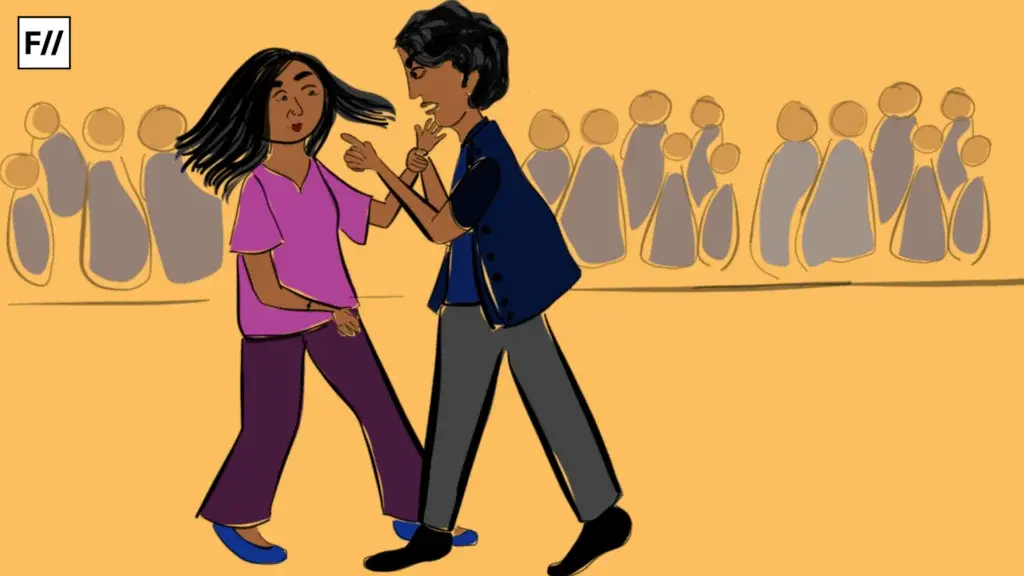The problem of rape has been condemned by two competing ideologies – feminism and the patriarchy (yes, the patriarchy). What sets them apart is the justification mechanism – the rational and moral apparatus involved in critiquing the problem.
Far too often, we hear individuals bemoan the problem of rape as a loss of honour; as a loss of virtue, dignity, izzat. We hear these individuals lament the futility of the victim’s existence thereafter, extend their support to the degradation of the family name. They introduce the concept of “shame” – they ask for the victim, the family, the community, the nation to be humiliated in response. They advocate for reactions like this:

and this:

and this:

Thinking that rape is wrong is enough.
If you situate rape within discourses of shame, you are strengthening the patriarchy. You support the notion that the woman is a repository of her clan’s (family, community, nation) social stature. You view her direct violation as their indirect violation – she becomes a tool through which they may be defiled. Her rape is condemned because she is someone’s daughter, sister or mother; because she represents the honour of her community; because she is the property of a nation.
If you situate rape within discourses of shame, that you think rape is wrong is exactly what makes the problem worse. You are part of a mindset that sanctions:
- Rape as a weapon of war/ tool of punishment
- Denial of female agency
- Marital rape
Rape is utilized as a weapon of war precisely because the sexual chastity of a woman is tied to the izzat of her community. The rape of Muslim women was systematically executed during the Godhra riots as a form of attack to the Muslim community. The fact that the rape of a woman can be used as a tool to punish her brother, or father follows the same logic.
Such a linking of sexual chastity to community honour also strips women of their agency. They are denied complete autonomy and control over their bodies and desires. Their sexual activity (and consequently, lifestyle) is heavily regulated by the men around them.
This in turn denies women the right to express and exercise sexual consent. Given that the woman’s sexual activity is intertwined with her family’s social stature, it is the family that determines her sexual activity. Marital rape is still not illegal in India: as the woman’s family and community have formally consented, there is no perceived loss of honour, and consequently, no violation.
Thinking rape is wrong due to a violation of izzat and honour operates upon the premise that women do not have complete ownership over their bodies. It shifts the focus of empathy from the female survivor to the men she is related to (“care about her – she is someone’s mother, daughter or sister”). It marks her body as a site of conquest through which other men and communities may be indirectly attacked. It weakens her hypothetical support system – far too often there have been cases of families shunning rape survivors because of the “shame” that the latter has brought upon them. It grossly contorts and misrepresents the figure of the victim – it redirects incoming support and sympathies toward the bruised honours of her clan. It does not grant her the authority to make her own sexual (or lifestyle) choices; in fact, it encourages constant and consistent social regulation of the same.
So how should we think about rape?
Rape is wrong because it is the violation of an individual’s right to bodily integrity and autonomy. Rape is wrong because it takes away the authority of an individual over their own body.
This branch of feminist thought confines the ramifications of rape to the survivor alone, and places heavy emphasis on individual agency.
Such a moral and rational apparatus does not allow for the use of rape as a political or punitive tool – if its effects are confined to the survivor, how could it attack anybody else? Thus by dislocating female sexuality from community honour, it grants sexual agency and the right to consent. It does not allow for external interference in individual choices (for this too would be seen as a violation of autonomy) and places no blame on the survivor (in terms of humiliation, embarrassment or shame).
It is not enough to think that rape is wrong. Often, our reasoning to condemn rape strengthens the same power structures that lead to its prevalence. The common reasons to fight rape are also the common contributing factors to female oppression, denial of female agency and sexual violence. How is it that in our attempts to solve a problem, we make it worse?
It is not enough to think that rape is wrong. If you think that rape is wrong for the wrong reasons, you are part of the problem.



